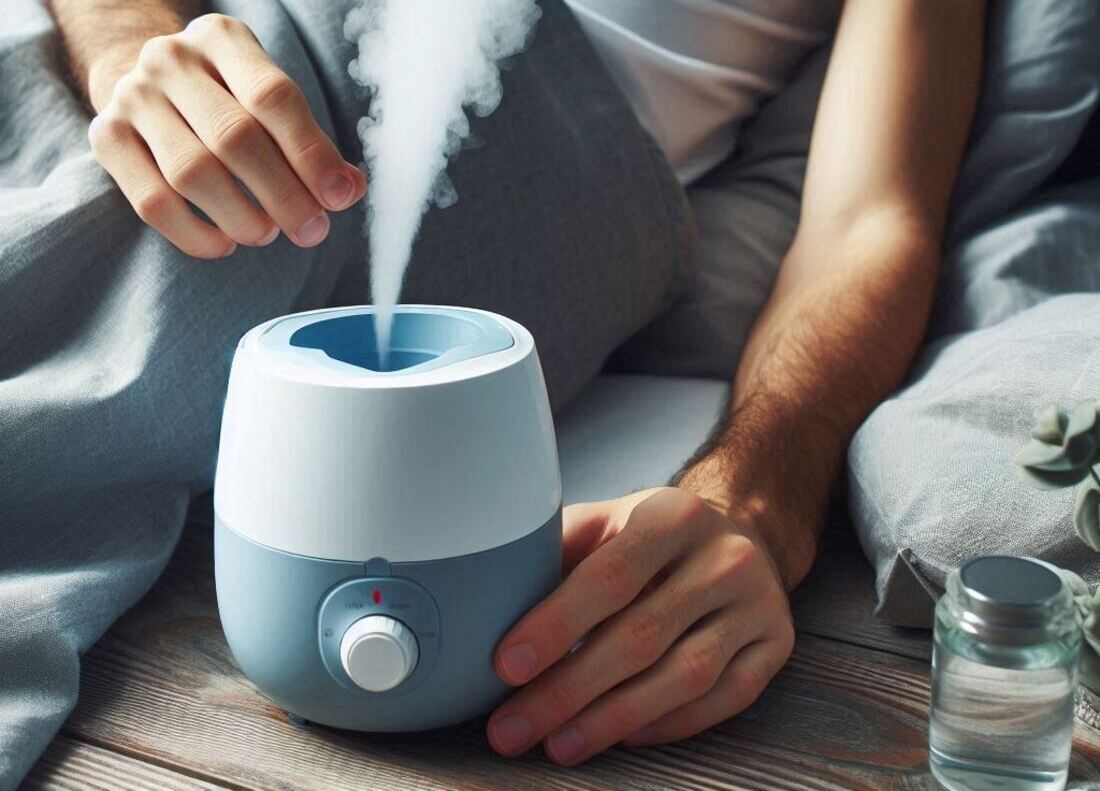Ever woken up with a scratchy throat, a nagging cough, or a feeling of congestion that just won’t quit?
These are all common respiratory issues that can make breathing difficult and disrupt your daily life.
While conventional medications offer relief, some people are interested in exploring natural alternatives.

Essential oils, concentrated plant extracts with potent aromas, have been used for centuries to promote health and well-being.
Could they be the key to unlocking natural respiratory relief?
Here we will dive deep into the world of essential oils, exploring their potential benefits for respiratory health.
We’ll discuss the science behind these fragrant remedies, the best essential oils for various respiratory issues, safe application methods, and popular product recommendations.
So, take a deep breath (even if it’s a little uncomfortable) and let’s explore how essential oils can help you breathe easier naturally!
Key Takeaways
- Essential oils offer a natural approach to respiratory relief.
- While research is ongoing, some essential oils may help with decongestion, soothing coughs, and boosting the immune system.
- Always prioritize safety when using essential oils – dilute, avoid contact with sensitive areas, and consult with your doctor if needed.
Understanding Respiratory Issues: The Struggle to Breathe

The respiratory system is a complex network of organs responsible for taking in oxygen and releasing carbon dioxide.
When this system is compromised due to factors like allergies, colds, the flu, or chronic conditions like asthma, it can lead to a variety of issues:
- Congestion: Mucus buildup in the nasal passages and airways makes breathing difficult.
- Coughing: A reflex to clear mucus and irritants from the airways.
- Sore throat: Inflammation and irritation in the throat causing pain and discomfort.
- Wheezing: A whistling sound during breathing due to narrowed airways.
These symptoms can be frustrating and impact your sleep, work, and overall well-being.
Essential Oils: Nature’s Fragrant Allies
Essential oils are extracted from various plant parts like flowers, leaves, seeds, and bark.
These concentrated liquids contain powerful aromatic compounds that offer a variety of therapeutic properties.
While research on the effectiveness of essential oils for respiratory issues is ongoing, some studies suggest they may offer relief by:
- Promoting decongestion: Certain essential oils may help clear mucus and open airways, making breathing easier.
- Soothing coughs: Essential oils with anti-inflammatory properties may reduce throat irritation and coughing.
- Boosting the immune system: Some essential oils may have antimicrobial properties that can help fight off respiratory infections.
Important Considerations: Safe and Effective Use of Essential Oils
Essential oils are potent and can be irritating to the skin and mucous membranes.
Here are some key safety points to remember:
- Never ingest essential oils. They are not meant to be taken internally.
- Always dilute essential oils with a carrier oil like almond oil, coconut oil, or jojoba oil before topical application.
- Perform a patch test on a small area of your skin before applying to a larger area.
- Avoid contact with eyes and mucous membranes.
- Consult your doctor before using essential oils if you are pregnant, breastfeeding, have any chronic health conditions, or are taking medications.

Top Essential Oils for Respiratory Relief
Now, let’s explore some of the most popular essential oils for respiratory issues:
| Essential Oil | Potential Benefits | Safe Application Methods | Popular Products with High Reviews (Note: Affiliate Links) |
|---|---|---|---|
| Eucalyptus | Decongestant properties, may help clear blocked airways and ease congestion. | Diffusion, steam inhalation (with caution), diluted topical application (chest or back). | Plant Therapy Eucalyptus Globulus Essential Oil (known for its purity and therapeutic grade) |
| Peppermint | Cooling effect, may help soothe a sore throat and relieve cough. | Diffusion, steam inhalation (with caution), diluted topical application (chest or neck). | NOW Foods Peppermint Essential Oil (USDA Certified Organic and affordable) |
| Tea Tree | Potential antimicrobial properties, may be beneficial for fighting off respiratory infections. | Diffusion, diluted topical application (avoid face and neck). | ArtNaturals 100% Pure Australian Tea Tree Oil (known for its high quality and multiple uses) |
| Lavender | Anti-inflammatory properties, can help ease congestion and promote relaxation during sleep. | Diffusion, diluted topical application (temples or feet). | Edens Garden Lavender Essential Oil (therapeutic grade and steam distilled) |
| Bergamot Oil | Soothing aroma, antibacterial and anti-inflammatory properties, may relieve stress. | Diffusion, diluted topical application (chest or back). | NaturoBliss Natural Undiluted Bergamot Essential Oil (fresh, citrus scent) |

Related Products
While the blog focuses on essential oils themselves, here are some popular related products that can enhance your essential oil experience for respiratory relief:
(Note: Affiliate Links)
- Diffusers: These electric devices disperse essential oils into the air, allowing you to inhale the therapeutic benefits. Consider ultrasonic diffusers for quiet operation and ease of use.
- Steam Inhalers: For targeted relief, consider a facial steamer or a personal steam inhaler. Add a few drops of diluted essential oil to hot water (not boiling) and inhale the steam cautiously.
- Carrier Oils: As mentioned earlier, carrier oils are essential for safe topical application of essential oils. Popular options include sweet almond oil, jojoba oil, and fractionated coconut oil.

Aromatherapy Blends for Respiratory Relief
If you’re feeling creative, you can create your own aromatherapy blends using the essential oils mentioned above.
Here are a few suggestions:
- Chest Rub Blend: Combine 2 drops eucalyptus, 2 drops peppermint, and 1 drop lavender in 1 tablespoon of carrier oil. Apply a diluted amount to your chest or back (avoiding the neck and face).
- Soothing Sleep Blend: Combine 2 drops lavender, 1 drop tea tree, and 1 drop chamomile in your diffuser for a relaxing bedtime routine.
Remember: These are just suggestions. Always research and dilute essential oils appropriately before creating your own blends.
Complementary Practices for Optimal Respiratory Health:
While essential oils can be a helpful tool, they are most effective when combined with other healthy habits:
- Hydration: Drink plenty of fluids to loosen mucus and soothe a sore throat.
- Rest: Allow your body time to heal and fight off infection.
- Warm salt water gargle: This can help soothe a sore throat and reduce inflammation.
- Air humidification: A cool mist humidifier can add moisture to the air, easing congestion.
- Manage stress: Chronic stress can worsen respiratory symptoms. Relaxation techniques like deep breathing or meditation can be beneficial.

When to See a Doctor
If your respiratory symptoms are severe, worsening, or not improving within a few days, consult your doctor.
They can diagnose the underlying cause and recommend appropriate treatment.
Conclusion
Essential oils can be a valuable addition to your natural approach to respiratory relief.
By understanding their properties, using them safely, and combining them with other healthy habits, you can breathe easier and experience the comfort of natural remedies.
Remember, consult your doctor if your symptoms persist or worsen.
Now, go forth and explore the world of essential oils, but always prioritize safety and responsible use!
Disclaimer
The information in this blog is for educational purposes only and should not be construed as medical advice. Always consult with a healthcare professional before using essential oils or for any respiratory concerns.
Citations
- National Center for Complementary and Integrative Health (NCCIH): Essential oils in the treatment of respiratory tract diseases
- Mayo Clinic: What are the benefits of aromatherapy?
- Alliance for Integrative Medicine: https://aimforwellbeing.org/
Related Posts



